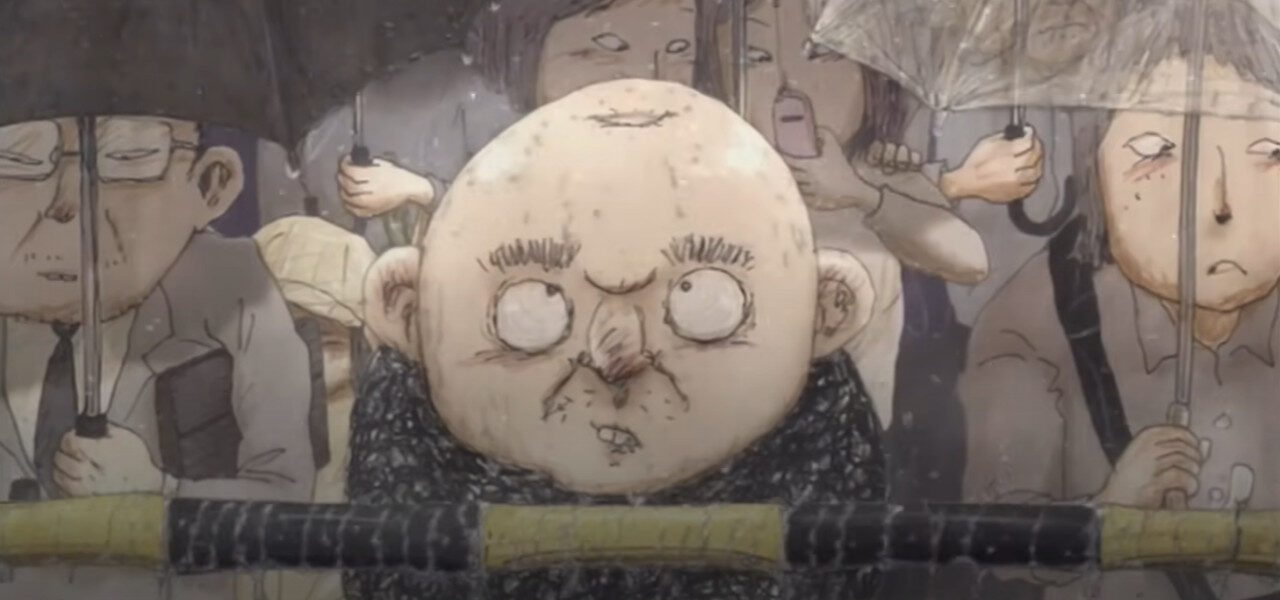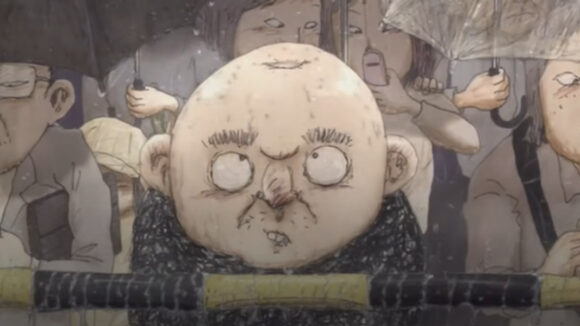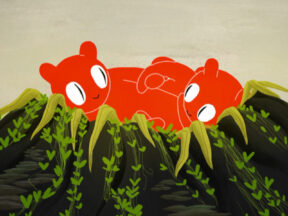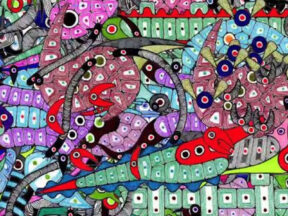

Know Your Indie Filmmaker: Kōji Yamamura
In this ongoing series, we profile the most interesting independent animation filmmakers working today — the artists who, through short films and other projects, change our ideas of what the medium can do.
This week’s subject is the superstar of Japanese indie animation, Kōji Yamamura.
In a paragraph: Yamamura’s films are a bit like chameleons. Each looks different from the previous one, yet there can be no doubt that the films are his. While his early works – primarily aimed at children – celebrated the magnificence of the mundane and the beauty of the moment, his later films explore a more complex world featuring morally confused protagonists struggling to locate their place and purpose in a harsh, cold, and chaotic environment.
Where to start: Well, you should start with the masterful Franz Kafka’s A Country Doctor (2007), but it’s not officially online, so let’s move on to Mt. Head (2002). Yamamura’s first major success grabbed top honors at Annecy and Zagreb and also received an Oscar nomination. In it, a stingy man hoards everything in his dump of a house. He is surrounded by garbage, a rubbishy ramification that staves off the threshold of despair. He wastes nothing. He shares nothing. He enjoys nothing. A funny, compassionate take on stingy anti-social folks.
What to watch next: The Old Crocodile (2005). After the success of Mt. Head, Yamamura took off in another direction. Using a more sparse graphic, Yamamura explores another greedy character, this time one who makes choices based solely on self-preservation. He will destroy family and friends to survive. In the end, he is rewarded, but at what cost?
Other key works: A House (1992), Bavel’s Book (1996), Your Choice! (1999), The Old Crocodile (2005)
Influences: “Argentinean literary artist Jorge Luis Borges has been a constant influence from his twenties to the present. Although he has already passed away, I still read his books over and over again, and whenever a new Japanese translation comes out, I always buy it. Other influences may be more significant from film directors. There are too many to name here, but if I had to open with one, it would be Jacques Tati.
There are so many influences from animation artists that it is hard to narrow it down to just two or three, but to this day Yury Norstein and Priit Pärn are my influences. Looking back on my life, however, I think the most significant influence has been a motorcycle collision when I was three years old. I don’t remember this accident, but I guess it made me focus on drawing, on myself, and the outside world.”
Says: “When you are independent, there could be problems with funding – it’s not an easy task. But, on the other hand, short animation films can also be under your own control. And I think it’s best to find something that you really want to make, even if you don’t have money; If you can do that, then everything else would be falling into place. When you are working in a commercial sphere, you don’t have the freedom to work on what you would like to work for. Work on things that you really enjoy.”
Currently working on: “I was commissioned to direct and design a vr piece; a project that took two years and will be completed around May of this year. And I’m also making two shorts now. One of the short films is the first collaboration project between contemporary Japanese literature and animation. Author Hideo Furukawawill read from an original story and we’ll create an animation based on that. The other film is a co-production with Miyu Productions tentatively titled A Picture in A Soulless Room, and will use the pinscreen technique.”
Pictured at top: Mt. Head




